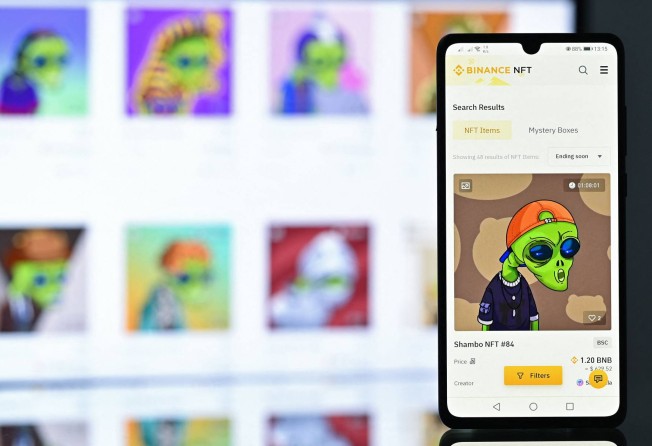
Beware of scammers in the NFT market
- Billion-dollar industry attracts not only investors, but also those hoping to make easy money by cheating the unsuspecting
- Regulation is slow to catch up with trends, making the frenzy to own an item that is unique rich grounds for fraudsters

A start-up boom attracts creative and innovative people. But when technology is also involved, scammers can be equally quick to take advantage of the unwary.
The soaring interest in non-fungible tokens, known as NFTs, is raising billions of dollars from digital assets perceived as collectable and perhaps a lucrative investment.
But regulation is slow to catch up with trends, making the frenzy to own an item that is unique rich grounds for fraudsters.
NFTs have developed from blockchain technology, ensuring a transparent record of ownership for those with access. Each digital item has a unique identification code and metadata, enabling a particular value. That provides income opportunities for anyone with talent or flair, including artists, video-makers, musicians, authors and athletes, who issue creations with what amounts to a certificate of authenticity.

There is a thriving market, fuelled by huge amounts attained on online platforms or at auction, spurred on by the US$69.3 million at Christie’s last March for a digital artwork by American artist Beeple, and subsequent eye-catching sales in Hong Kong and elsewhere.
The global market last year was estimated at more than US$40 billion, enticing investors, speculators and wherever there are plentiful funds, scammers. The industry is unregulated, which means there is no recourse when something goes awry.
Since most of it is based on anonymity – unknown entities selling tokens in untraceable cryptocurrencies to unidentifiable buyers – it is difficult, or even impossible, to hold an individual or entity accountable when it comes to fraud.
Unsuspecting buyers in Hong Kong have been duped by phishing links, websites appearing to offer genuine items, impersonators claiming to represent personalities, and a scam known by the crypto community as a “rug pull”, involving developers abandoning a project and disappearing with investors’ funds.
It is a Wild West environment awash in crypto transactions and police are limited in what they can investigate. Collectors who have investment in mind need to be alert for fake stores, counterfeit NFTs, social media impersonators and for those who want to get involved in the industry, Ponzi schemes and rug pulls.